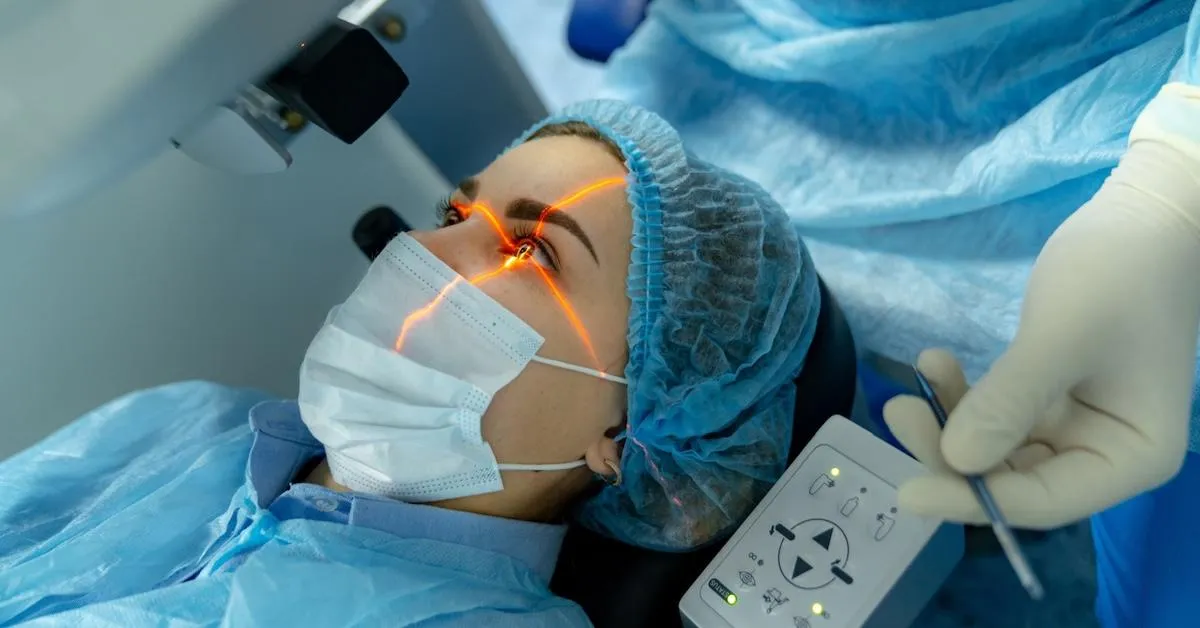
Top Questions to Ask Your Surgeon About Cornea Surgery
Preparing for cornea surgery can be stressful, especially if it’s your first time facing an eye procedure. You might feel unsure about what questions are important or even where to begin. The truth is, asking the right questions is one of the best ways to feel confident and calm before surgery. It also helps you understand what to expect and how to prepare for recovery.
Here’s a guide to some of the most helpful questions to ask your surgeon if you’re considering or already scheduled for cornea surgery.
What Type of Cornea Surgery Do I Need and Why?
There are different types of corneal surgeries, and understanding why your surgeon has chosen one over another is key. Ask if you’re getting a full-thickness transplant (penetrating keratoplasty), a partial transplant (like DSEK or DMEK), or another procedure such as a corneal cross-linking treatment. Understanding your specific case gives you clarity and helps you feel more prepared for what’s ahead.
What Are the Main Risks and Complications?
Every surgery comes with risks. Your surgeon should clearly explain what could go wrong, how often those problems happen, and what steps are taken to prevent them. Common concerns include infection, rejection of the transplanted tissue, or blurry vision after healing. It’s also important to ask how they handle complications if they arise.
How Long Does the Procedure Take and Will I Be Awake?
Knowing how long you’ll be at the clinic or hospital helps you plan your day and support arrangements. Some cornea surgeries are done under local anesthesia, meaning you’ll be awake but won’t feel pain. Ask what you’ll experience during the procedure, including any noises, lights, or sensations.
What Is the Recovery Process Like?
Recovery is different depending on the type of surgery. You’ll want to know how long it will take to get back to normal activities. Ask how much time you’ll need off work, whether you can drive, and how to protect your eye as it heals. This helps you set realistic expectations and avoid setbacks.
Will I Need Eyedrops or Medications After the Surgery?
Most cornea surgeries require a routine of medicated eyedrops during recovery. Ask how often you’ll need to use them and for how long. It’s also a good idea to ask about side effects or what to do if you miss a dose. Knowing this ahead of time makes it easier to build a consistent care routine.
How Often Will I Need Follow-Up Visits?
Corneal healing must be monitored carefully. Ask how often you’ll need to come in for check-ups after surgery and what the surgeon will be looking for. These visits are crucial to make sure the eye is healing well and to catch any early signs of rejection or other problems.
What Kind of Results Can I Expect?
While some patients see significant improvement right away, others may need time for vision to fully improve. Ask your surgeon to explain what kind of results are realistic in your case. Will you still need glasses or contact lenses? Could you need additional procedures down the line?
What Happens If the Surgery Doesn’t Work as Expected?
It’s important to ask what options are available if the surgery doesn’t bring the results you hoped for. Some patients may need enhancement surgeries or other treatments later. Knowing the backup plan helps ease anxiety and gives you confidence in the care you’re receiving.
Are There Things I Should Avoid Before or After Surgery?
Your surgeon may advise avoiding certain medications, activities, or even foods before the surgery. Afterward, you’ll likely need to avoid rubbing your eyes, swimming, or lifting heavy items. Ask for a full list of dos and don’ts so you can prepare accordingly.
Can I Talk to Other Patients Who’ve Had This Surgery?
Hearing from others who’ve been through the process can help ease your nerves. Ask your clinic if they have any patient testimonials or if they can connect you with someone willing to share their experience. It’s not a medical necessity, but it can be emotionally reassuring.
In Summary
The more you know, the more in control you’ll feel. Asking clear, detailed questions helps you understand the surgery process and build trust with your surgeon. It also reduces fear and helps you mentally and physically prepare for the best possible outcome.
At Bellasee, we believe in keeping patients informed every step of the way. Our team is always ready to walk you through the procedure, answer your questions with care, and support you before and after surgery. If you’re considering cornea surgery, Bellasee is here to help make the journey smooth and reassuring.